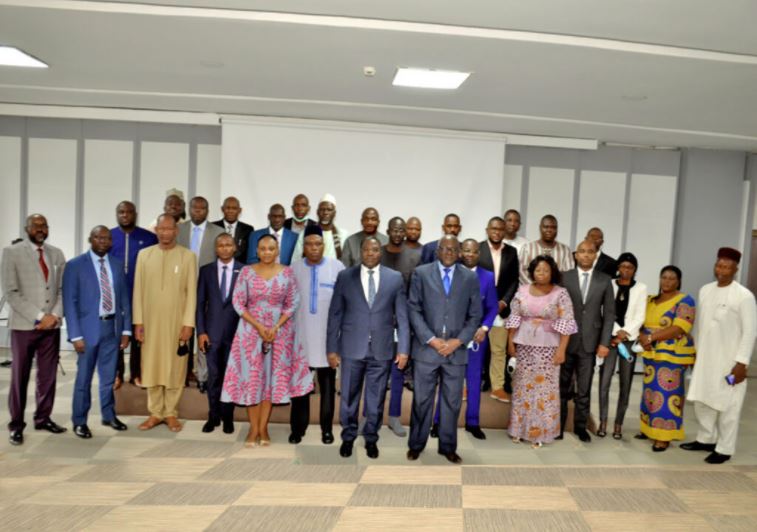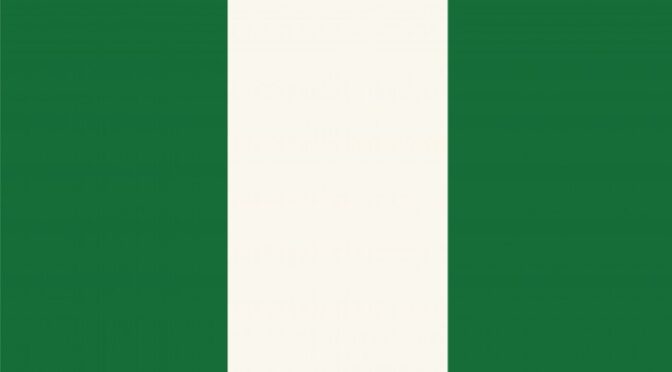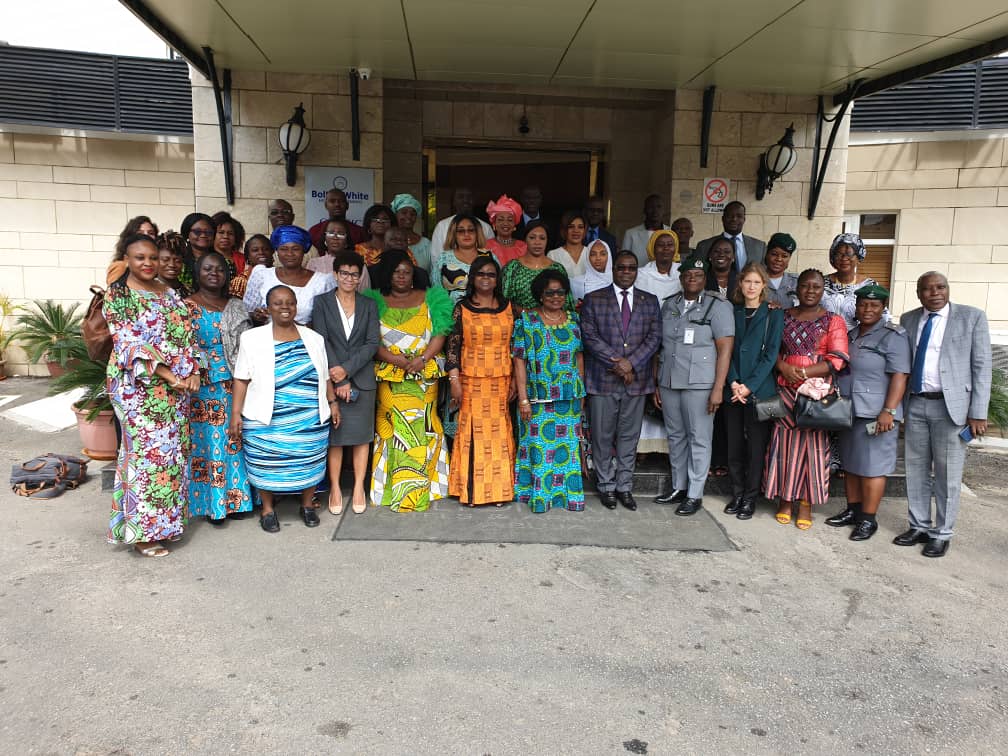
Regional meeting on capacity building of small scale women cross border traders on ECOWAS Customs procedure 29 – 30 October 2019 Abuja, NIGERIA
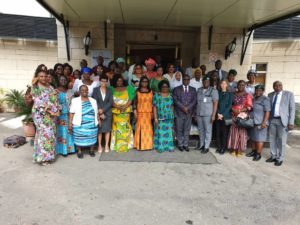 Gender equality has always existed in ECOWAS programs, and this principle is enshrined in Article 63 of the Revised ECOWAS Treaty on “Women and Development”. In addition, an agency has been created in this direction, the Gender Center, based in Dakar, Senegal, to ensure the effective implementation of the principle in West Africa.
Gender equality has always existed in ECOWAS programs, and this principle is enshrined in Article 63 of the Revised ECOWAS Treaty on “Women and Development”. In addition, an agency has been created in this direction, the Gender Center, based in Dakar, Senegal, to ensure the effective implementation of the principle in West Africa.
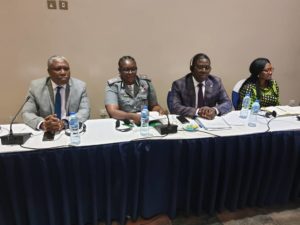 However, it must be noted that a capacity building plan for a large layer of traders has been more or less neglected, namely cross-border small business entrepreneurs and more specifically the women’s layer of these cross-border players. Indeed, no simplified customs mechanism exists to date to facilitate the movement of these small business entrepreneurs to the borders of the member states of the community to maximize their potential in intra-regional trade.
However, it must be noted that a capacity building plan for a large layer of traders has been more or less neglected, namely cross-border small business entrepreneurs and more specifically the women’s layer of these cross-border players. Indeed, no simplified customs mechanism exists to date to facilitate the movement of these small business entrepreneurs to the borders of the member states of the community to maximize their potential in intra-regional trade.
It is within this framework that the ECOWAS Commission, through the Directorate of Customs Union and Taxation, set up a simplified mechanism for customs and payment procedures specifically for cross-border small business entrepreneurs, in order to enable them to benefit from the potential offered by the West African market and thus freely circulate their products and if these are products of Community origin they can benefit from preferential Community treatment.
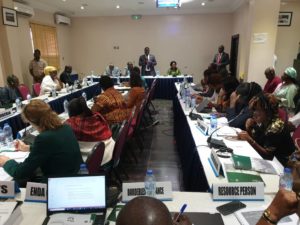 The ECOWAS Commission with the support of GIZ organized a workshop with representatives of small business entrepreneurs on the instruments available to facilitate the movement of goods in the community and also discuss with them about the possible customs facilities (such as the ETLS) that has been put in place at the border to take into account their needs.
The ECOWAS Commission with the support of GIZ organized a workshop with representatives of small business entrepreneurs on the instruments available to facilitate the movement of goods in the community and also discuss with them about the possible customs facilities (such as the ETLS) that has been put in place at the border to take into account their needs.
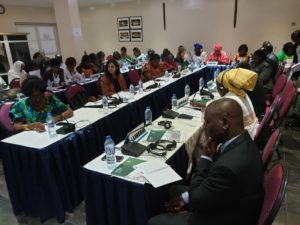 The main objective of the meeting was to set up a platform for discussion and exchange of information with representatives of small business entrepreneurs to discuss the means available to facilitate the free movement of their products at borders and to ensure that they actually enjoy the benefits that the ECOWAS Trade Liberalization Scheme offers to products originating in ECOWAS. However, the purpose of the workshop was not to formalize this cross-border trade but rather to make its citizens benefit from the customs tools available in the community.
The main objective of the meeting was to set up a platform for discussion and exchange of information with representatives of small business entrepreneurs to discuss the means available to facilitate the free movement of their products at borders and to ensure that they actually enjoy the benefits that the ECOWAS Trade Liberalization Scheme offers to products originating in ECOWAS. However, the purpose of the workshop was not to formalize this cross-border trade but rather to make its citizens benefit from the customs tools available in the community.
Specifically, the workshop focused on:
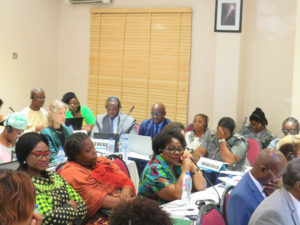
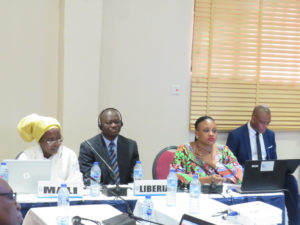 Raising Awareness-on customs tools of ECOWAS (ETLS, CET, Customs Code);
Raising Awareness-on customs tools of ECOWAS (ETLS, CET, Customs Code);- The Identification of barriers and challenges faced by women traders at borders; Some of the Challenges faced by cross-border small business entrepreneurs includes; intimidation by some enforcement officers at the border, Harassment and sometimes sexual demands by border officers, demand for bribes, conflicting trade rules, and delays in border, cumbersome formalities, unclear rules and regulations
- Provision of simplified customs procedures for women traders
The expected results of the workshop were:
- Plan of Action that will identify the activities to be undertaken by ECOWAS to improve the free flow of products of entrepreneurs of small enterprises;
- (ii) A platform for the exchange of representations of women entrepreneurs of small cross-border enterprises and customs administrations of the community.
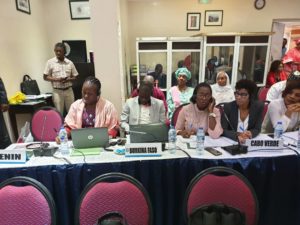 The ETLS Scheme will reduce the cost of doing business and improve ease of doing business, make cross border trading attractive, increase transparency and accountability in the Customs system, improve revenue collection and increase the participation and contribution of small and medium scale women cross border enterprises trading at the border.
The ETLS Scheme will reduce the cost of doing business and improve ease of doing business, make cross border trading attractive, increase transparency and accountability in the Customs system, improve revenue collection and increase the participation and contribution of small and medium scale women cross border enterprises trading at the border.

